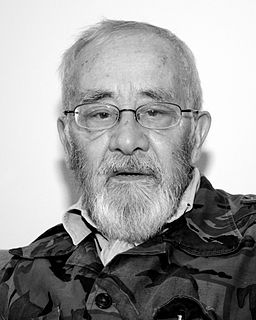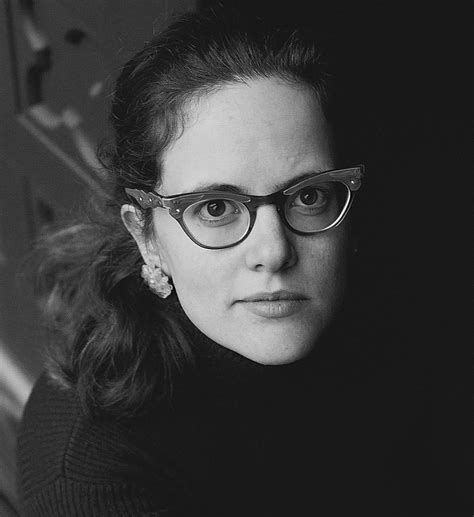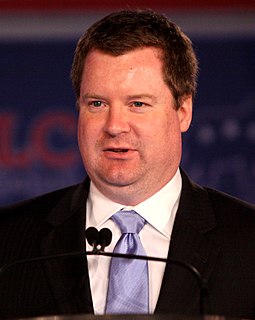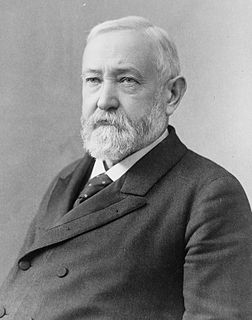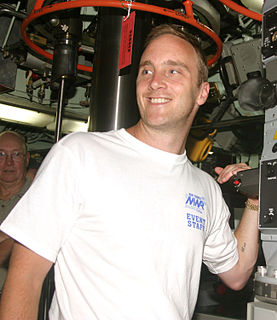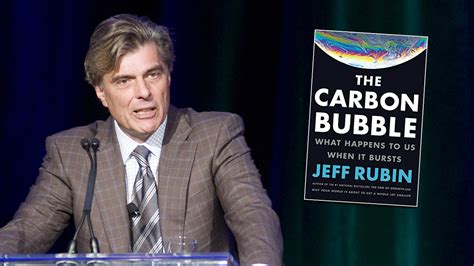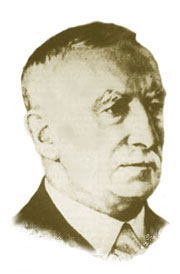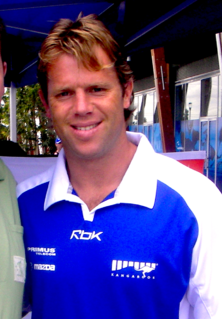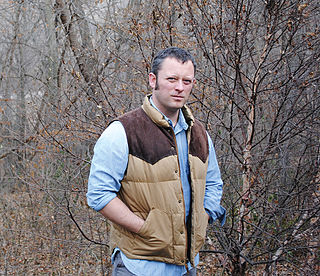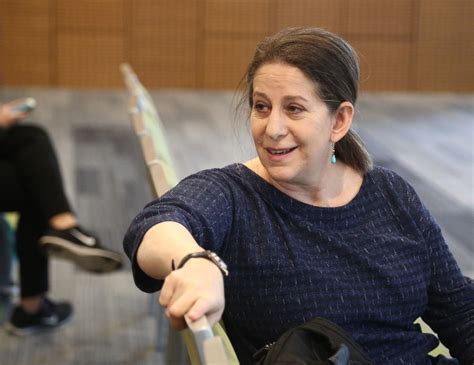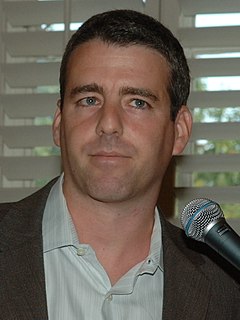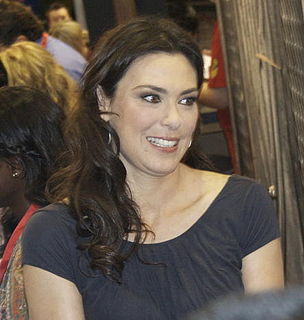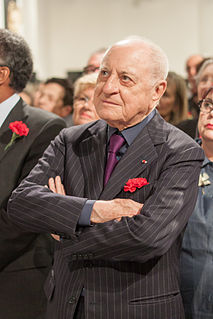Top 1147 Factory Farming Quotes & Sayings - Page 19
Explore popular Factory Farming quotes.
Last updated on December 2, 2024.
In proportion to the mental energy he spent, the man who creates a new invention receives but a small percentage of his value in terms of material payment, no matter what fortune he makes, no matter what millions he earns. But the man who works as a janitor in the factory producing that invention, receives an enormous payment in proportion to the mental effort that his job requires of him. And the same is true of all men between, on all levels of ambition and ability.
Millions of people never analyze themselves. Mentally they are mechanical products of the factory of their environment, preoccupied with breakfast, lunch, and dinner, working and sleeping, and going here and there to be entertained. They don't know what or why they are seeking, nor why they never realize complete happiness and lasting satisfaction. By evading self-analysis, people go on being robots, conditioned by their environment. True self-analysis is the greatest art of progress.
I would say that the one incredible thing that Karachi has going for it is the unabated supply of new migrants that pour into it day after day. It could be a poor factory worker who simply wants a job, it could be an ambitious guy coming for an education - they all add hope and vibrancy to the city. Now, this is not something that is generally taken as positive in Karachi. But the hope is that the migration that comes into the city replenishes its stores of resilience and energy.
I walk up and down the rows. The heads look like rubber halloween masks. They also look like human heads, but my brain has no precedent for human heads on tables or in roasting pans or anywhere other than on top of a human bodies, and so I think it has chosen to interpret the sight in a more comforting manner. - Here we are at the rubber mask factory. Look at the nice men and woman working on the masks.
The smell of factory farms . . . many notice these places only when the odours reach their homes, affecting their own quality of life. We create these animals for our profit and pleasure, playing with their genes, violating their dignity as living creatures, forcing them to lie and live in their own urine and excrement, turning pens into penitentiaries and frustrating their every desire except what is needed to keep them breathing and breeding. And then we complain about the smell.
The thing about drugs is that it [dealing] gives people an income to deal with, and it also gives people a compelling drama in their lives that they used to get from the office and the factory, and they're no longer there. What happens if you have everything in the hands of the state, particularly in the line of an authoritarian state, they just give people drugs to keep them doped up, to keep them passive.
Shaped a little like a loaf of French country bread, our brain is a crowded chemistry lab, bustling with nonstop neural conversations.Imagine the brain, that shiny mound of being, that mouse-gray parliament of cells, that dream factory, that petit tyrant inside a ball of bone, that huddle of neurons calling all the plays, that little everywhere, that fickle pleasuredome, that wrinkled wardrobe of selves stuffed into the skull like too many clothes into a gym bag.
Would you leave me alone, you walking pair of boots! Let go of my easel, you refugee from a luggage factory. If you need some wood for a toothpick, there’s a bunch of it on the porch. (Sunshine) Beth. What are you doing?...She says she was forcing you inside before it got dark and something decided to eat you. (Talon) Tell Swamp Breath I was headed this way. Why was she…Oh jeez, am I really have a conversation with a gator? (Sunshine)
During the First World War, I told her, Hitler had been a runner, delivering messages between the German trenches, and he was disgusted by seeing his fellow soldiers visit French brothels. To keep the Aryan bloodlines pure,and prevent the spread of venereal disease, he commissioned an inflatable doll that Nazi troops could take into battle. Hitler himself designed the dolls to have blond hair and large breasts. The Allied firebombing of Dresden destroyed the factory before the dolls could ever go into wide distribution.
It's such hard work doing a musical. I did my first musical last year, performing in The Producers, and it was a big part to suddenly be doing Leo Bloom in that. It's such hard work. It's a proper slog. It became like clocking in. And it's a big factory - you go in, everyone's got their little plot, people are taking in and out of it if they have days off or holidays, and it's just a jigsaw that all works. It always amazes me that this product would happen every night and it was just all these elements coming together in a big machine.
When every one is to cultivate himself into man, condemning a man to machine-like labor amounts to the same thing as slavery. If a factory-worker must tire himself to death twelve hours and more, he is cut off from becoming man. Every labor is to have the intent that the man be satisfied.... His labor is nothing taken by itself, has no object in itself, is nothing complete in itself; he labors only into another's hands, and is used (exploited) by this other.
A people without children would face a hopeless future; a country without trees is almost as helpless; forests which are so used that they cannot renew themselves will soon vanish, and with them all their benefits. A true forest is not merely a storehouse full of wood, but, as it were, a factory of wood and at the same time a reservoir of water. When you help to preserve our forests or plant new ones you are acting the part of good citizens.
What one thing does the world need most today-apart, that is, from the all-inclusive thing we call righteousness? Aren't you inclined to agree that what this old world needs is just the art of being kind? Every time I visit a factory or any other large business concern, I find myself trying to diagnose whether the atmosphere is one of kindliness or the reverse. And somehow, if there is palpably lacking that spirit of kindness, the owners ... have fallen short of achieving 24-carat success no matter how imposing the financial balance sheet may be.
I care not for the theoretical symmetry and impregnable logic of your moral code, I care not for the hoary respectability and traditional mysticisms of your theological institutions, I care not for the beauty and solemnity of your rituals and religious ceremonies, I care not even for the reasonableness and unimpeachable fairness of your social ethics,--if it does not turn out better, nobler, truer, men and women,--if it does not add to the world's stock of valuable souls,--if it does not give us a sounder, healthier, more reliable product from this great factory of men--I will have none of it.
For it was Saturday night, the best and bingiest glad-time of the week, one of the fifty-two holidays in the slow-turning Big Wheel of the year, a violent preamble to a prostrate Sabbath. Piled up passions were exploded on Saturday night, and the effect of a week's monotonous graft in the factory was swilled out of your system in a burst of goodwill. You followed the motto of 'be drunk and be happy,' kept your crafty arms around female waists, and felt the beer going beneficially down into the elastic capacity of your guts.
Peter Drucker has pointed out that it is a manager's job to "do things right." It is an executive's job to make sure "the right things" get done. Even the most rigorous eco-efficient business paradigm does not challenge basic practices and methods: a shoe, building, factory, car, or shampoo can remain fundamentally ill-designed even as the materials and processes involved in its manufacture become more "efficient."
Yet this perhaps is what love does, or the memory of it; it sucks the life from the living, glorying body and leaves it, when love has gone, a shred, a simulacrum - dross, to be swept up from the factory floor, pitiful and dusty, useless... Do all men and women feel love before they die? This force, this source of light, that lies before the sun; glances off mountains and lakes, blinding and dazzling, on a Sunday afternoon; so brilliant you have to guard your soul, fold your arms to shield your heart from the very memory of it.
The capitalist engine is first and last an engine of mass production which unavoidably also means production for the masses. . . . It is the cheap cloth, the cheap cotton and rayon fabric, boots, motorcars and so on that are the typical achievements of capitalist production, and not as a rule improvements that would mean much to the rich man. Queen Elizabeth owned silk stockings. The capitalist achievement does not typically consist in providing more silk stockings for queens but in bringing them within reach of factory girls.
Perhaps in the back of our minds we already understand, without all the science I've discussed, that something terribly wrong is happening. Our sustenance now comes from misery. We know that if someone offers to show us a film on how our meat is produced, it will be a horror film. We perhaps know more than we care to admit, keeping it down in the dark places of our memory-- disavowed. When we eat factory-farmed meat we live, literally, on tortured flesh. Increasingly, that tortured flesh is becoming our own.
If the factory people outside the colleges live under the discipline of narrow means, the people inside live under almost every other kind of discipline except that of narrow means -- from the fruity austerities of learning, through the iron rations of English gentlemanhood, down to the modest disadvantages of occupying cold stone buildings without central heating and having to cross two or three quadrangles to take a bath.
There are a few people out there with whom you fit just so, and, amazingly, you keep fitting just so even after you have growth spurts or lose weight or stop wearing high heels. You keep fitting after you have children or change religions or stop dyeing your hair or quit your job at Goldman Sachs and take up farming. Somehow, God is gracious enough to give us a few of those people, people you can stretch into, people who don't go away, and whom you wouldn't want to go away, even if they offered.
The digestive canal is in its task a complete chemical factory. The raw material passes through a long series of institutions in which it is subjected to certain mechanical and, mainly, chemical processing, and then, through innumerable side-streets, it is brought into the depot of the body. Aside from this basic series of institutions, along which the raw material moves, there is a series of lateral chemical manufactories, which prepare certain reagents for the appropriate processing of the raw material.
We have the illusion of freedom only because so few ever try to exercise it. Try it sometime. Try to save your home from the highway crowd, or to work a trade without the approval of the goons, or to open a little business without a permit, or to grow a crop without a quota, or to educate your child the way you want to, or to not have a child. We all have the freedom of a balloon floating in a pin factory.
Undercover investigations threw back the curtain on the systemic exploitation of animals on factory farms. The response by agribusiness interests has been to back laws that ban animal advocates from taking pictures or videos at these facilities, and ban the media from publishing any that are taken. The laws also make it a crime for animal advocates to seek employment at animal enterprises without disclosing their intentions.
The thing about being on the majors, from the beginning, going into this, I was like, "I'm not going to be treated like a factory," because that's never the way it was done before. You're talking about a major label, we're talking about serious business; you're not an artist anymore, you're a business, you have to work in terms of product, you have to release a product, and I don't really think that way at all.
Increasingly, we will be faced with a choice: whether to keep the oceans for wild fish or farmed fish. Farming domesticated species in close proximity with wild fish will mean that domesticated fish always win. Nobody in the world of policy appears to be asking what is best for society, wild fish or farmed fish. And what sort of farmed fish, anyway? Were this question to be asked, and answered honestly, we might find that our interests lay in prioritizing wild fish and making their ecosystems more productive by leaving them alone enough of the time.
For every mother who ever cursed God for her child dead in the road, for every father who ever cursed the man who sent him away from the factory with no job, for every child who was ever born to pain and asked why, this is the answer. Our lives are like these things I build. Sometimes they fall down for a reason, sometimes they fall down for no reason at all.
Jobs have already started to surge. Since my election, Ford announced it will abandon its plans to build a new factory in Mexico and will instead invest $700 million in Michigan, creating many, many jobs. Fiat/Chrysler announced it will invest $1 billion in Ohio and Michigan creating 2,000 American jobs.
I visited Paterson many years ago - 20 some years ago as a kind of day trip because of William Carlos Williams, because of Allen Ginsberg having lived there. And I went to the Great Falls and sat really in the exact same spot as Adam Driver does as Paterson. And I walked around the factory buildings, and I was rereading - I was reading at the time the epic length poem "Paterson" by Williams.
Molecular biology has shown that even the simplest of all living systems on the earth today, bacterial cells, are exceedingly complex objects. Although the tiniest bacterial cells are incredibly small, weighing less than 10-12 gms, each is in effect a veritable micro-miniaturized factory containing thousands of exquisitely designed pieces of intricate molecular machinery, made up altogether of one hundred thousand million atoms, far more complicated than any machine built by man and absolutely without parallel in the nonliving world.
The press heralded this as a major accomplishment. The rush from the press as soon as it was announced suggested a high level of coordination. Like lemmings in a staged dive off a cliff, 'historic' became the media's rallying cry. There is nothing historic about the deal. In fact, news reports from November 2012 noted that China expected, in 2012, that its carbon emissions would begin to decline after 2030 because of factory upgrades, efficiencies, etc.
D.H. Lawrence had the impression – that psychoanalysis was shutting sexuality up in a bizarre sort of box painted with bourgeois motifs, in a kind of rather repugnant artificial triangle, thereby stifling the whole of sexuality as a production of desire so as to recast it along entirely different lines, making of it a ‘dirty little secret’, a dirty little family secret, a private theater rather than the fantastic factory of nature and production
Up on the roof Tatiana thought about the evening minute, the minute she used to walk out the factory doors, turn her head to the left even before her body turned, and look for his face. The evening minute as she hurried down the street, her happiness curling her mouth upward to the white sky, the red wings speeding her to him, to look up at him and smile.
That's the one thing I say about the great British shows. You know, I see it on the series on HBO where the season is shortened to like 12 or 6 or whatever it is. You know there's a reason why there's a quality behind that. Because I think the writers as well as the crew and the cast do get burnt out after doing continuous episodes after and over and it feels like a factory rather than something of a creative process. And we get tapped out. That's just my opinion.
My husband had a clothing store in Paris, and I had his factory make specifically for me something similar to the one I was looking for. We made it in different colours, and decided to sell them in the store...and in a day, they were sold out! This sweater became later known as the "poor boy sweater" and it ended up making the cover of Elle magazine, and in a day, I became the "Queen of knit", without knowing anything about knitting!
I cannot always sympathize with that demand which we hear so frequently for cheap things. Things may be too cheap. They are too cheap when the man or woman who produces them upon the farm or the man or woman who produces them in the factory does not get out of them living wages with a margin for old age and for a dowry for the incidents that are to follow. I pity the man who wants a coat so cheap that the man or woman who produces the cloth or shapes it into a garment will starve in the process.
What the meat industry figured out is that you don't need healthy animals to make a profit. Sick animals are more profitable... Factory farms calculate how close to death they can keep animals without killing them. That's the business model. How quickly they can be made to grow, how tightly they can be packed, how much or how little can they eat, how sick they can get without dying...We live in a world in which it's conventional to treat an animal like a block of wood.
I remember I used to go to The Laugh Factory and just goof off onstage, and then I'd see Dane Cook. He did a bit about his Mom making the bed in the summertime when he was a kid. He just said "Vroom!" and threw the sheet up in the air and the sheet would just stay over the bed for like a minute and a half. All he had were his arms out, but I could see the sheet. And he didn't do anything. He just kept it there. And I went, "I have to write more."
Most women without children spend much more time than men on housework; with children, they devote more time to both housework andchild care. Just as there is a wage gap between men and women in the workplace, there is a "leisure gap" between them at home. Most women work one shift at the office or factory and a "second shift" at home.
If I were a factory employee, a workman on the railroads or a wage-earner of any sort, I would undoubtedly join the union of my trade. If I disapproved of its policy, I would join in order to fight that policy; if the union leaders were dishonest, I would join in order to put them out. I believe in the union and I believe that all men who are benefited by the union are morally bound to help to the extent of their power in the common interests advanced by the union.
You cannot do anything without rousing the masses to action. A plenary meeting of the Soviet must be called to decide on mass searches in Petrograd and the goods stations. To carry out
these searches, each factory and company must form contingents, not on a voluntary basis: it must be the duty of everyone to take part in these searches under the threat of being deprived of
his bread card. We can't expect to get anywhere unless we resort to terrorism: speculators must be shot on the spot. Moreover, bandits must be dealt with just as resolutely: they must be
shot on the spot.
Get ready for a smaller world. Soon, your food is going to come from a field much closer to home, and the things you buy will probably come from a factory down the road rather than one on the other side of the world. You will almost certainly drive less and walk more, and that means you will be shopping and working closer to home. Your neighbours and your neighbourhood are about to get a lot more important in the smaller tworld of the none-too-distant-future.
I deal with stress in two ways because there are two kinds of stress. There's stress that you can take care of and there's stress that you can't. The first one, I take care of it as fast as possible, because putting it off always makes it worse. Things that I can't fix? I think about the fact that I can't fix them. I think about why I can't fix them and I come to terms with the fact that this is a problem that I'm not going to overcome and that the world is not a wish granting factory.
The main characteristic of Nature's farming can therefore be summed up in a few words. Mother earth never attempts to farm without live stock; she always raises mixed crops; great pains are taken to preserve the soil and to prevent erosion; the mixed vegetable and animal wastes are converted into humus; there is no waste; the processes of growth and the processes of decay balance one another; ample provision is made to maintain large reserves of fertility; the greatest care is taken to store the rainfall; both plants and animals are left to protect themselves against disease.
The size of the U.S. middle class has been shrinking. Wages have been stagnant. We don't have those factory jobs that paid a living wage and enabled a family to have a home where the wife did not have to work. But we sent our factories abroad and there is no likelihood of getting them back. Equally worrisome is that some managerial jobs and professional jobs (such as lawyers) which support middle class life are threatened by automation.
... [L]ess than at any time does a simple reproduction of reality tell us anything about reality. A photograph of the Krupp works or GEC yields almost nothing about those institutions. Reality proper has slipped into the functional. The reification of human relationships, the factory, let's say, no longer reveals these relationships. Therefore something has to be constructed, something artificial, something set up.
My dad grew up with straight-up no running water. He slept in a twin bed with his two sisters and his mom, like 'Charlie And The Chocolate Factory' style: like, feet at the head, feet at the head alternating. And then I think his dad slept on, like, a bed of newspapers on a floor in their apartment.
The church must never become a government factory, carrying on a nationalized industry of religion with the people as the bolts and nuts; with God reduced to the role of cramped advocate of current national policy. Surely the pages of history are replete and the examples in many a foreign country convincing that this kind of church-state union-whatever the original motives, or however noble the original purposes-winds up with a state that is less than stable and a church that is less than sanctified, and with the poor still hungry.
I know a 'crime against nature' when I see one. It is usually a sign of crimes against nature that we cannot bear to see them at all, that we recoil and hide our eyes, and no one has ever cringed at the sight of a soybean factory. I also know phony arguments when I hear them--unbridled appetite passing itself off as altruism, and human arrogance in the guise of solemn 'duty.' We must, as C.S. Lewis advises, 'reject with detestation that covert propoganda for cruelty which tries to drive mercy out of the world by calling it names such as 'Humanitarianism' and 'Sentimentality.
When a company wants to move to Mexico or another company - or another country and they want to build a nice, beautiful factory and they want to sell their product through our border, no tax, and the people that all got fired, so we end up with unemployment and debt, and they end up with jobs and factories and all of the other things, not going to happen that way. And the way you stop it is by imposing a tax.
The slave labors, but with no cheer - it is not the road to respectability, it will honor him with no citizens' trust, it brings no bread to his family, no grain to his garner, no leisure in after-days, no books or papers to his children. It opens no school-house door, builds no church, rears for him no factory, lays no keel, fills no bank, earns no acres. With sweat and toil and ignorance he consumes his life, to pour the earnings into channels from which he does no drink, into hands that never honor him. But perpetually rob and often torment.
I have a scenario but almost always it's entwined with at least one person to begin with. Then I sort of expand from there and I'm thinking about books novels. I've got these scrolls of paper that I hang up in my office and this is my idea room, my nightmare factory, and I have a big title at the top of the scroll and on the left hand side I have these character sketches on the characters, and then once I figure out who they are I can figure out what they want and once I figure out what they want I'm able to put obstacles in the way of that desire, and that's where plot springs from.
North Korea invites parody. We laugh at the excesses of the propaganda and the gullibility of the people. But consider that their indoctrination began in infancy, during the fourteen-hour days spent in factory day-care centers; that for the subsequent fifty years, every song, film, newspaper article, and billboard was designed to deify Kim Il-sung; that the country was hermetically sealed to keep out anything that might cast doubt on Kim Il-sung's divinity. Who could possibly resist?
A modern factory reaches perhaps almost the limit of horror. Everybody in it is constantly harassed and kept on edge by the interference of extraneous wills while the soul is left in cold desolate misery. What man needs is silence and warmth; what he is given is an icy pandemonium. Physical labor may be painful, but it is not degrading as such. It is not art; it is not science; it is something else, possessing an exactly equal value with art and science, for it provides an equal opportunity to reach the impersonal stage of attention.
To speak of certain government and establishment institutions as 'the system' is to speak correctly . . . They are sustained by structural relationships even when they have lost all other meaning and purpose. People arrive at a factory and perform a totally meaningless task from eight to five without question because the structure demands it be that way. There's no villian, no 'mean guy' who wants them to live meaningless lives, it's just that the structure, the system demands it and no one is willing to take on the formidable task of changing the structure just because it is meaningless.
... for nearly 40 years, while producing the now-banned industrial coolants known as PCBs at a local factory, Monsanto Co. routinely discharged toxic waste into a west Anniston creek and dumped millions of pounds of PCBs into oozing open-pit landfills. And thousands of pages of Monsanto documents-many emblazoned with warnings such as "CONFIDENTIAL: Read and Destroy"-show that for decades, the corporate giant concealed what it did and what it knew.
If you look at some shows that have an ugly feel to them, or a nihilistic sort of feel to them, you'll usually find a group of cynical, unhappy, miserable people behind the production. If you see a show that's rather boring, or a cookie-cutter factory show, you'll usually find some pretty uninteresting, boring people behind it.
There was an exchange between me and Andy Warhol. We met, we liked each other, we appreciated each other. He would come to us for Easter in Marrakech. In September we would meet up in Venice. And every time I went to New York I would spend some time with him at the Factory, where we would have dinner together. He's a man that I admired deeply. He shook up the notion of painting - not as much as Marcel Duchamp had done, but he was part of the same general movement. And then we both admired art deco.
A very poor kid came up to me after a talk and said 'I want to go blow up a factory.' I asked how old he was and he said 17. I said 'have you ever had sex?' He said 'no.' I said 'just remember if you get caught you aren't going to have sex for twenty years at least.' That's not saying that one person having sex is worth the salmon. I'm not saying it's a reason not to act, I'm saying don't be stupid.
In many poor countries, if the daughter is told who she's going to marry, and told that she's going to live in the village with her husband's family, she really has very little opportunity to make her own decisions. If she comes for a while to work in a factory, she has her own money. In family agriculture, it's never your money. It's whatever somebody decides to give you. For many people this is tremendously valuable, because then they can step up.














